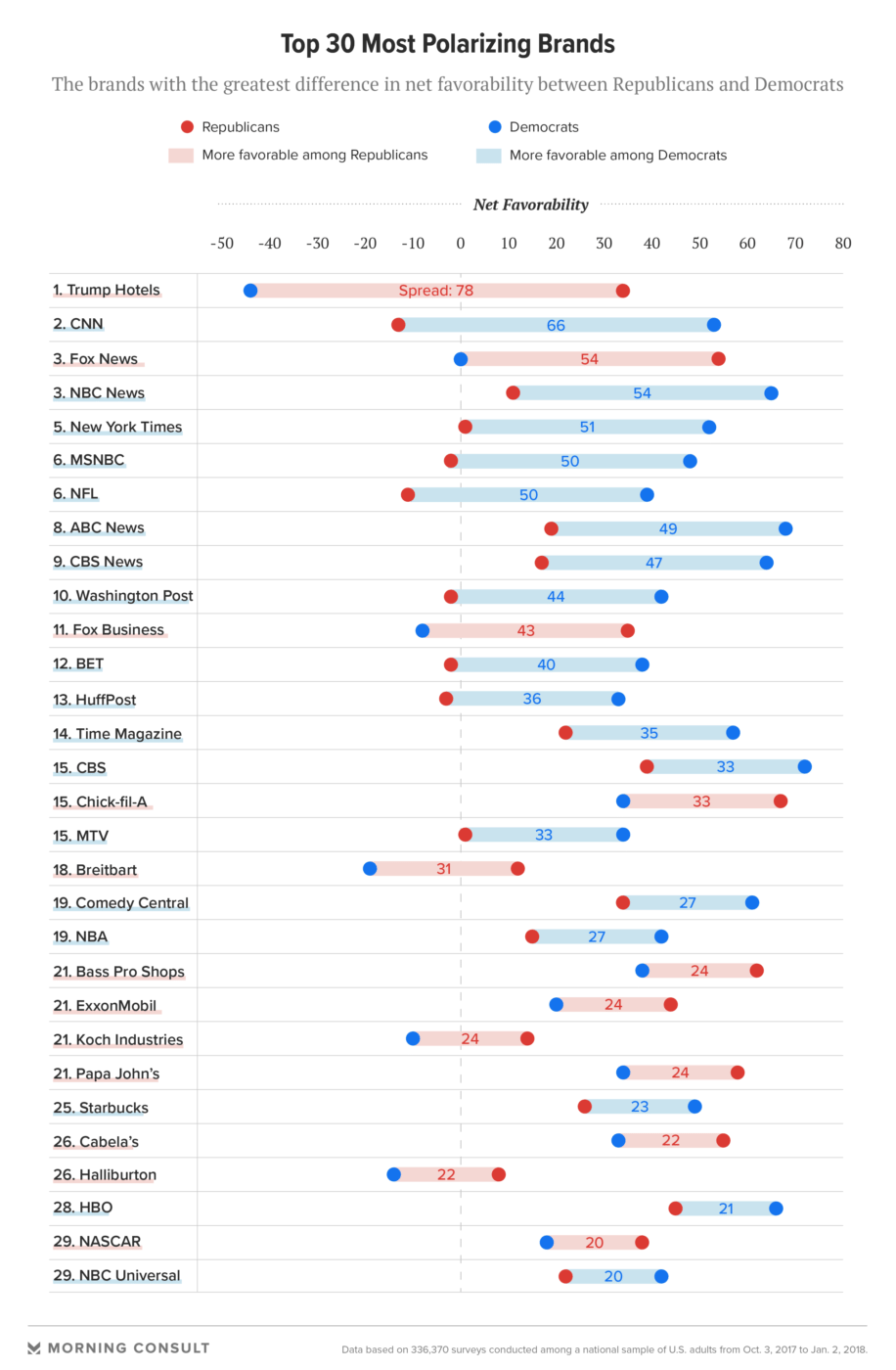A person’s political opinions have long been understood to color his or her perceptions of news stories. Research continues to show that people with different political views not only process news differently, they turn to and trust vastly different news sources. A study from Morning Consult has added to the understanding by showing that as of 2018, perceptions of news brands are highly polarized.
In Morning Consult’s study, they looked at how Americans of different political party affiliations ranked national brands – including sports leagues, consumer goods, food and beverages and media companies. As they state, this research shows that “politics is increasingly seeping into most facets of American culture. As a result, brands that were once dutifully neutral have taken bold stands, and others have been involuntarily dragged into controversy.” The impact of these changes on brand value has yet to be seen, but this research could suggest where political divisiveness might hit a brand’s bottom line. In the media industry, where political views have such a powerful impact on trust, this information is particularly important to track. Of the top 30 brands with the greatest difference in net favorability, 12 were news brands, largely TV news. The most polarizing written news brands were The New York Times, The Washington Post, Time Magazine and Huff Post.

These extreme spreads of favorable and unfavorable opinion may cause anxiety for news publishers, who want to know what they can do to improve overall favorability and ensure that their work remains trusted.
It’s important to consider that news readers trust the news they turn to, regardless of their feelings towards other sources. As Digital Content Next (DCN) found in their “Trust as a Proxy for Brand Value” research, readers and consumers hold news brands to a high standard of truthfulness. And as the American Press Institute (API) has found, the trust readers have in the news they use most is at the same levels across partisan lines. It would seem from the research that no matter their personal politics, when readers invest in a relationship with a source, they trust it.
Lastly, there is some positive news within the Morning Consult report. Although news brands see a large split in favorability, there were no news publishers in the top 10 unfavorable brands list for any political party affiliation. The trust publishers have worked hard to attain may be limited to certain groups, but within those groups, the support is strong.
As we have stated in our Support Real News Campaign, we believe the dissemination of information to the public to promote discourse and awareness is the lynchpin of any democracy. There is a lot of confusion about what is real versus fake news, and more education is needed to improve news literacy. However, through our efforts and those of trusted news organizations and online content distribution platforms – such as offering fact-checking tools and helping readers better understand what they are reading (e.g. explaining the difference between an opinion piece and a hard news story) – we are working to preserve that trust. And through listening to readers, news organizations can make adjustments to improve their overall favorability, across party lines.
